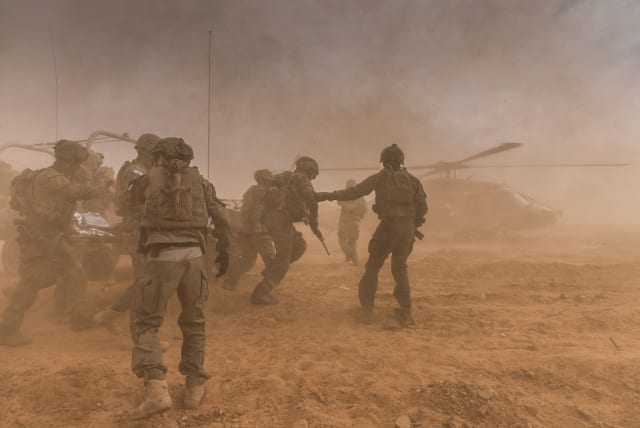Civilian Oct. 7 probe hears: National Emergency tasks should not have been given to IDF

Former Israeli officials criticize the shift in emergency management and political decisions, citing major failures in crisis response.
Over the course of the years, the responsibilities that had belonged to Israel’s National Emergency Authority (Rachel) were moved over to The Home Front Command, harming Israel’s ability to handle emergencies, Brig.-Gen. (res.) and former Rachel head, Zeev Tzuk Ram told an unofficial, civilian-led October 7 probe on Thursday.
The probe was announced last month by families of those killed on October 7, representatives from kibbutzim that were attacked, and civil society groups. The committee leading the probe is made up of legal and security experts and one of the primary goals of the committee is to instigate the foundation of a state probe, which has been shot down by Israel’s political echelon.
“Rachel needs to manage the authorities, the military, and government offices,” Tzuk Ram said, explaining that there needs to be a body coordinating the work of the various organizations needed to respond in an emergency.
“When rockets are fired from Lebanon to Nahariya, who is the first to respond? the police. They are already in the field, they are present. The IDF is not there, and The Home Front Command is not there,” he said.
Tzuk Ram offered as another example the responsibility of helping civilian evacuees, or helping civilians during the coronavirus pandemic, saying that this job should have fallen to Rachel. This responsibility was moved to The Home Front Command, he said, adding that “it is a military organization, so it did not handle some things.”
“We have seen what happens when there is no organization to integrate everything.”
2005 Gaza Strip disengagement strengthened Israel's security
Former prime minister Ehud Olmert also testified before the committee Thursday, touching on common security conceptions and the atmosphere among senior security officials in Israel.
“In contrast to the fake misrepresentation that is being presented – that the [2005] Disengagement exposed us to security risk and brought about terror and losses with massive shooting, the picture is the opposite.”
“Kassams started to be fired before the disengagement and continued after it,” he said.
Olmert also told the committee that “for 15 years there has been a conception where any senior security official who says something becomes a target for defamation, slander, and censure by the prime minister himself and those around him. And so an atmosphere is created in which people don’t speak the facts and their opinion so that they don’t get into wars that upset their standing and ability to act.”
He also touched on Israel’s attitude toward Hamas over the years. “It is not that we didn’t see,” said Olmert. “It is that we did not give that group of nobodies [Hamas] the credit that they could do it.”
Maj.-Gen. (res.) Yisrael Ziv, the former head of the Gaza Division and the IDF’s Operations Directorate, also said that Israel underestimated Hamas.”
“If the problem was behind the fence it did not bother us,” he said.
“We [looked at] the enemy as infantile or a terror organization. We paid attention to what flew over us and our view was very micro-tactical. On the other hand, there were many processes that happened in which Hamas took over territory and turned itself into the sovereign.”
He also told the committee that Israel’s government has made decisions based on politics during the war.
“There were decisions behind the goals of the war, and suddenly they were changed for political reasons,” he said.
“This is a government that is doing things against ethics, morality, and the law,” he said, adding that failing to bring the hostages back is divorced from the ethics of the founding of the state.
Jerusalem Post Store
`; document.getElementById("linkPremium").innerHTML = cont; var divWithLink = document.getElementById("premium-link"); if (divWithLink !== null && divWithLink !== 'undefined') { divWithLink.style.border = "solid 1px #cb0f3e"; divWithLink.style.textAlign = "center"; divWithLink.style.marginBottom = "15px"; divWithLink.style.marginTop = "15px"; divWithLink.style.width = "100%"; divWithLink.style.backgroundColor = "#122952"; divWithLink.style.color = "#ffffff"; divWithLink.style.lineHeight = "1.5"; } } (function (v, i) { });

